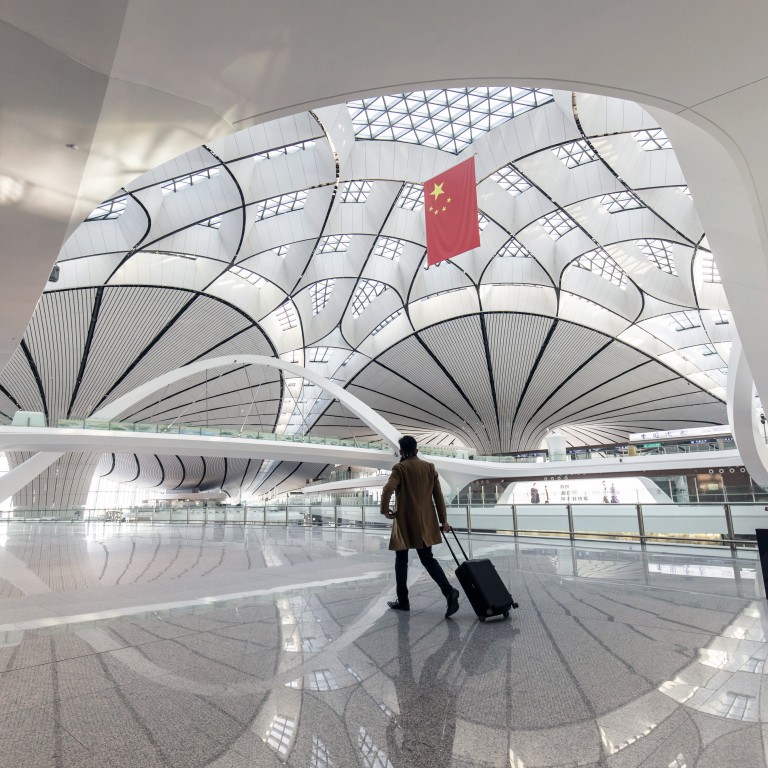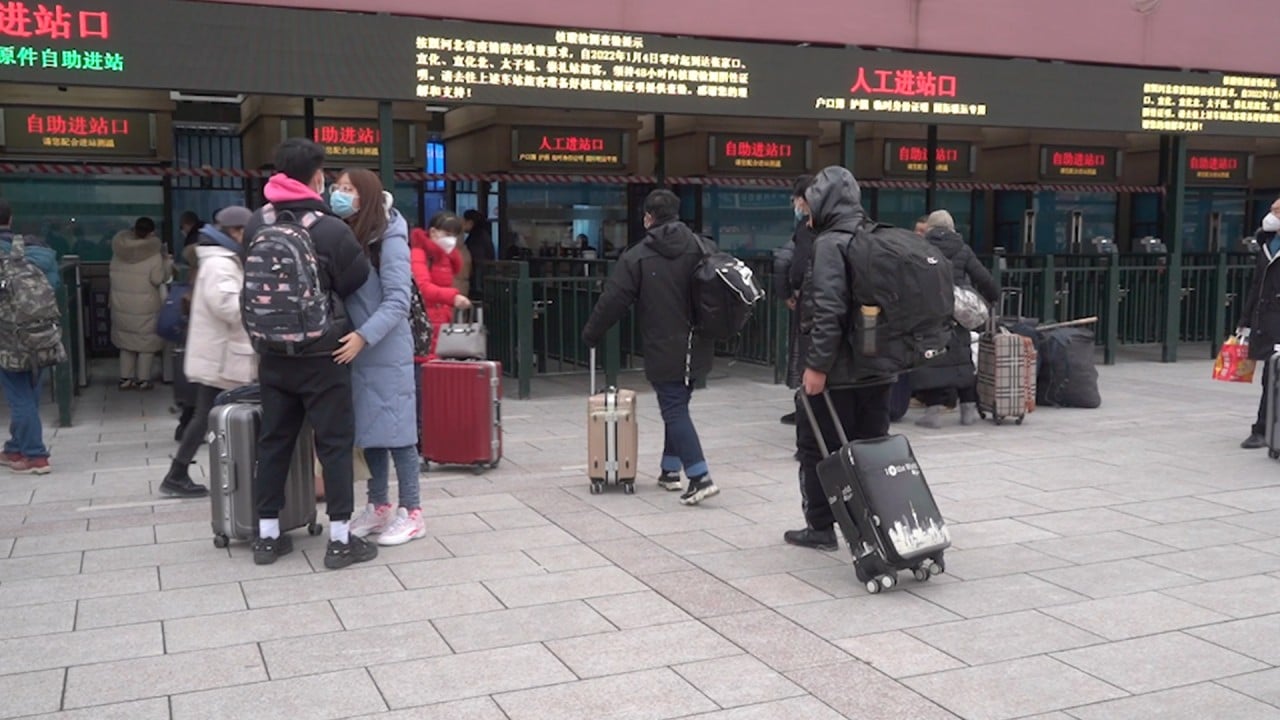
Lifting travel ban would be ‘catastrophic’ for China: Covid-19 expert
- Epidemiologist and senior adviser to Beijing, Zeng Guang, says the country must not ‘blindly’ follow a WHO recommendation to ease restrictions
- He recommends preparing the public psychologically for reopening once vaccination coverage in China is sufficiently high
China’s immunisation coverage is insufficient and the public psychologically unprepared for a lifting of the international travel ban, according to Zeng Guang, a member of the government’s senior expert panel and former chief epidemiologist of the Chinese Centre for Disease Control and Prevention.

In a social media post on Wednesday, Zeng rejected the WHO’s recommendation, issued on January 19, to ease or even lift the restrictions on international travel.
The WHO argues the restrictions can no longer “provide added value and continue to contribute to the economic and social stress experienced by state parties” given the rise of the Omicron variant.
“If we follow the WHO experts’ recommendations blindly and lift or ease international travel restrictions now without enough immunisation coverage and psychological adjustments [of the public], I think there will be catastrophic consequences,” Zeng wrote on Weibo, China’s microblogging site.
Zeng said the WHO recommendation reflected the views of Western experts and was not applicable to China, because of the country’s success in keeping Covid-19 at bay through mass screening, masking, quarantine, vaccination, travel restrictions and the suspension of international flights.
“All these measures have proved beneficial to China. Under current circumstances, it is not appropriate to ease [them] or lift international travel restrictions,” he wrote.
Zero-Covid approach puts China at disadvantage to the West, economists warn
But he conceded that Omicron’s high transmissibility had changed the nature of the pandemic – by its ability to break through the defences acquired through vaccination as well as its low severity and mortality rates.
“Under such circumstances, I think our country should look at Covid-19 from a broader perspective and compare the cost of [having Covid-19 in China] and other public health costs,” he said.
Zeng recommended that Beijing should consider preparing the public psychologically for an easing of restrictions when there was sufficient immunisation coverage in China.
“When the conditions are ripe in our country. I have the following recommendations. First, we should not take the lead … We should analyse carefully the consequences of lifting travel measures by other countries and see what lessons they have learned,” he said.
“Secondly, we have to make preparations about easing the restrictions, including public health and science, as well as preparing the public psychologically.”
In the meantime, China should continue to ramp up its pandemic control measures in the face of continuous sporadic outbreaks in different parts of the country, Zeng said.
“Our dynamic zero case approach cannot weed out all Covid-19 cases forever, mainly because … there are gaps in the public’s immunity, as it wanes in many vaccinated people and our booster programme is not good enough,” he said, adding that vaccination rates for high-risk groups, including the elderly, remain low.
More than half of Europe on track to contract Omicron, WHO says
Zeng’s remarks follow a surge in hospitalisations and deaths in many countries, despite Omicron’s lower virulence. The US, for example, is seeing more than 2,000 people on average dying from the virus every day. The numbers are roughly on a par with deaths in late September, driven by the Delta variant.
Zeng said many Western countries had eased social gathering and travel restrictions, not because of public health or scientific-based judgments, but for economic considerations.
The more restrictions are eased, the larger the consequences for a country, but public pressure mounts if restrictions are tightened, he said. The dilemma was forcing Western countries to close and open their doors intermittently, according to Zeng.


